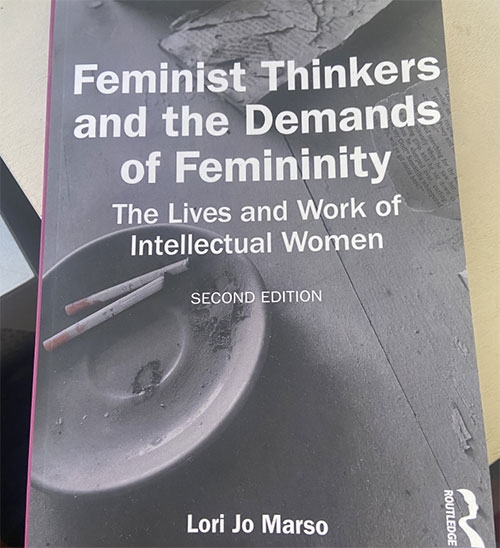A second edition of Lori Marso’s influential book, “Feminist Thinkers and the Demands of Femininity: The Lives and Work of Intellectual Women,” has been published by Routledge Taylor & Francis Group.
First released in 2006, the book examines the lives and work of historical and contemporary feminist thinkers such as Mary Wollstonecraft, Germaine de Staël, Emma Goldman and Simone de Beauvoir.
The book explores their struggles with politics, intellectual work, and material and existential conditions of femininity. A new introduction to this second edition resituates these themes in contemporary feminist literature and theory.
Marso, the Doris Zemurray Stone Professor of Modern Literary and Historical Studies, creates a dialogue among these pioneering thinkers and argues that their theories should not be divorced from the struggles and contradictions of their actual lives.
Describing it as an essential exploration of the feminist intellectual, Jennifer Nash of Duke University and author of “How We Write Now: Living with Black Feminist Theory,” said Marso’s book is “necessary reading in a time when radical thought feels more urgent than ever.”
And Isabelle Laurenzi of Yale University said, “Lori Marso's capacious book remains critically important, twenty years later. She vividly demonstrates how contemporary feminist thought may be enlivened by turning to foremothers' writing and lives as their lifework—or the ways their thought and material circumstances variously but inevitably intertwine in the feminist preoccupations that make and remake a life.”
A political theorist, Marso is the author and editor of numerous books. Her latest, “Feminism and the Cinema of Experience,” is based in part on a “Women in the Movies” film series Marso started when she arrived at Union in 1997. The series evolved into a feminist film course.
In the book's introduction, Marso shares her impressions of conversations about film with Union students as she develops her argument that camerawork, sound, editing and new forms of narrative provoke discomfort in viewers.

